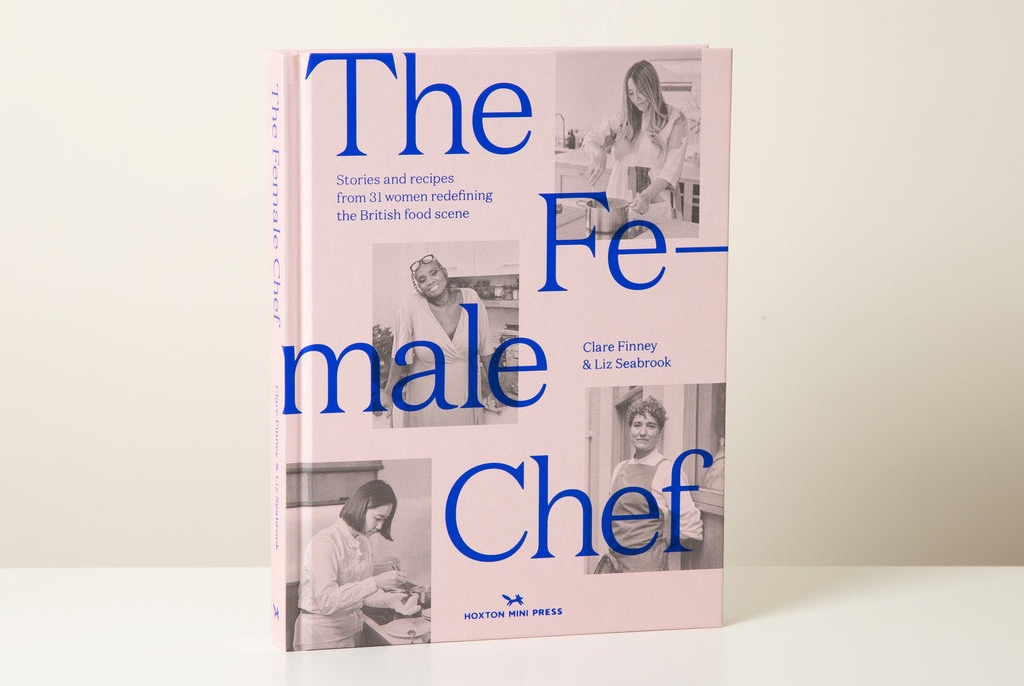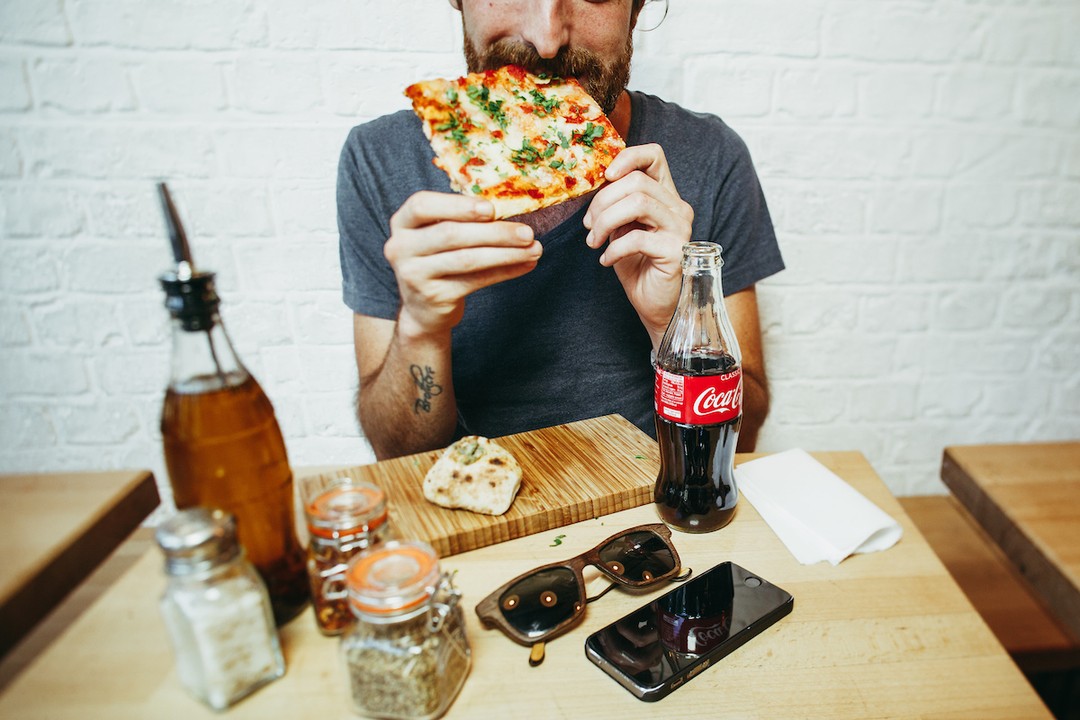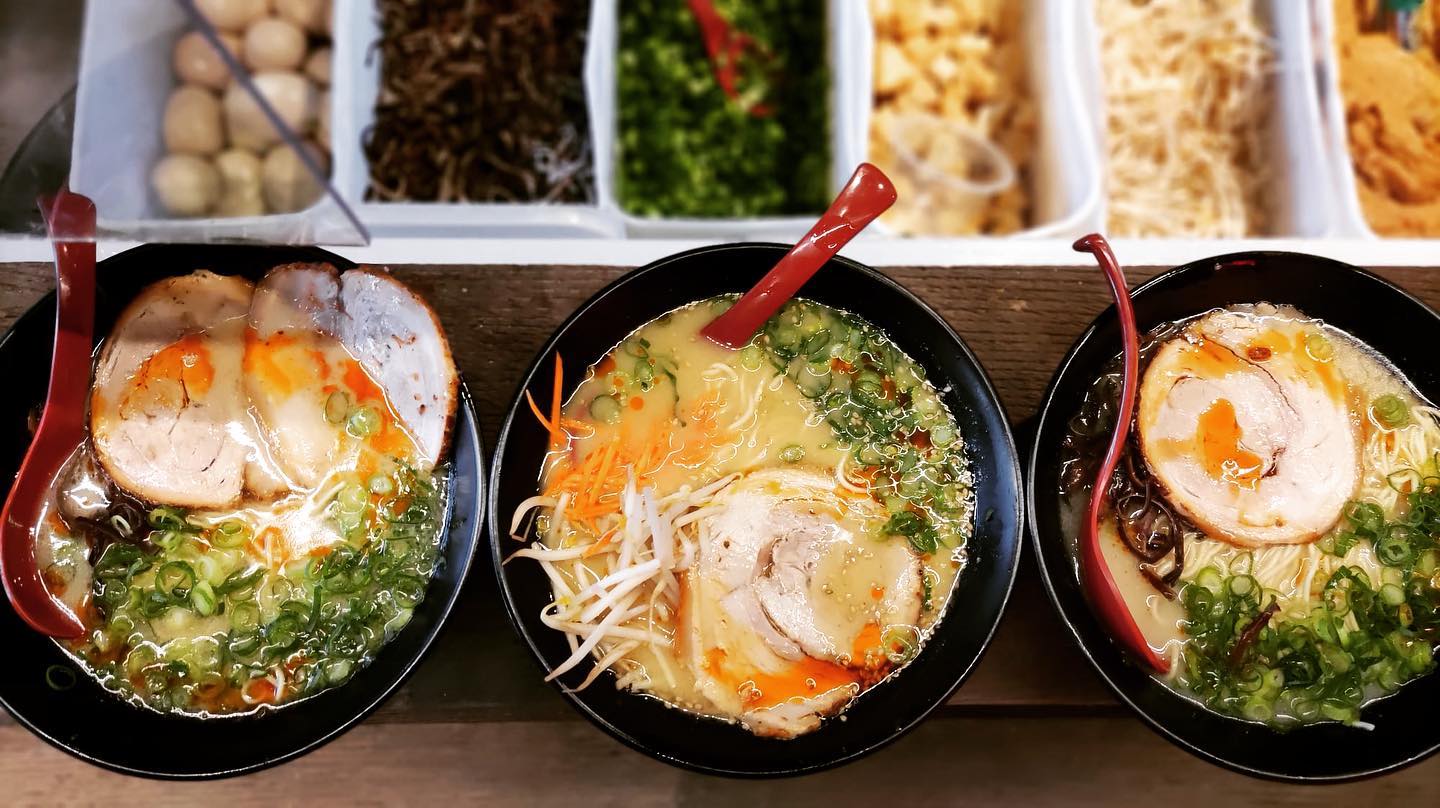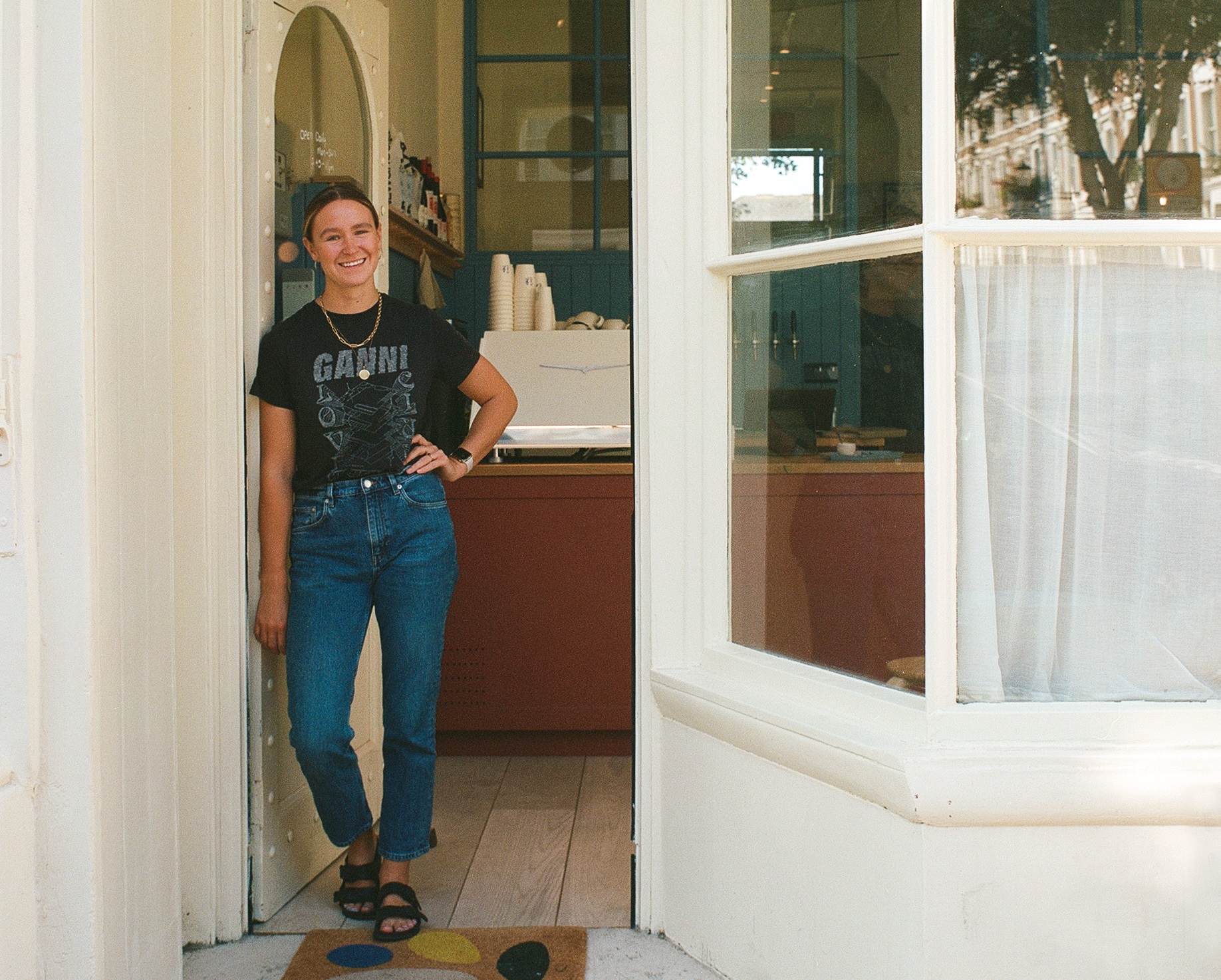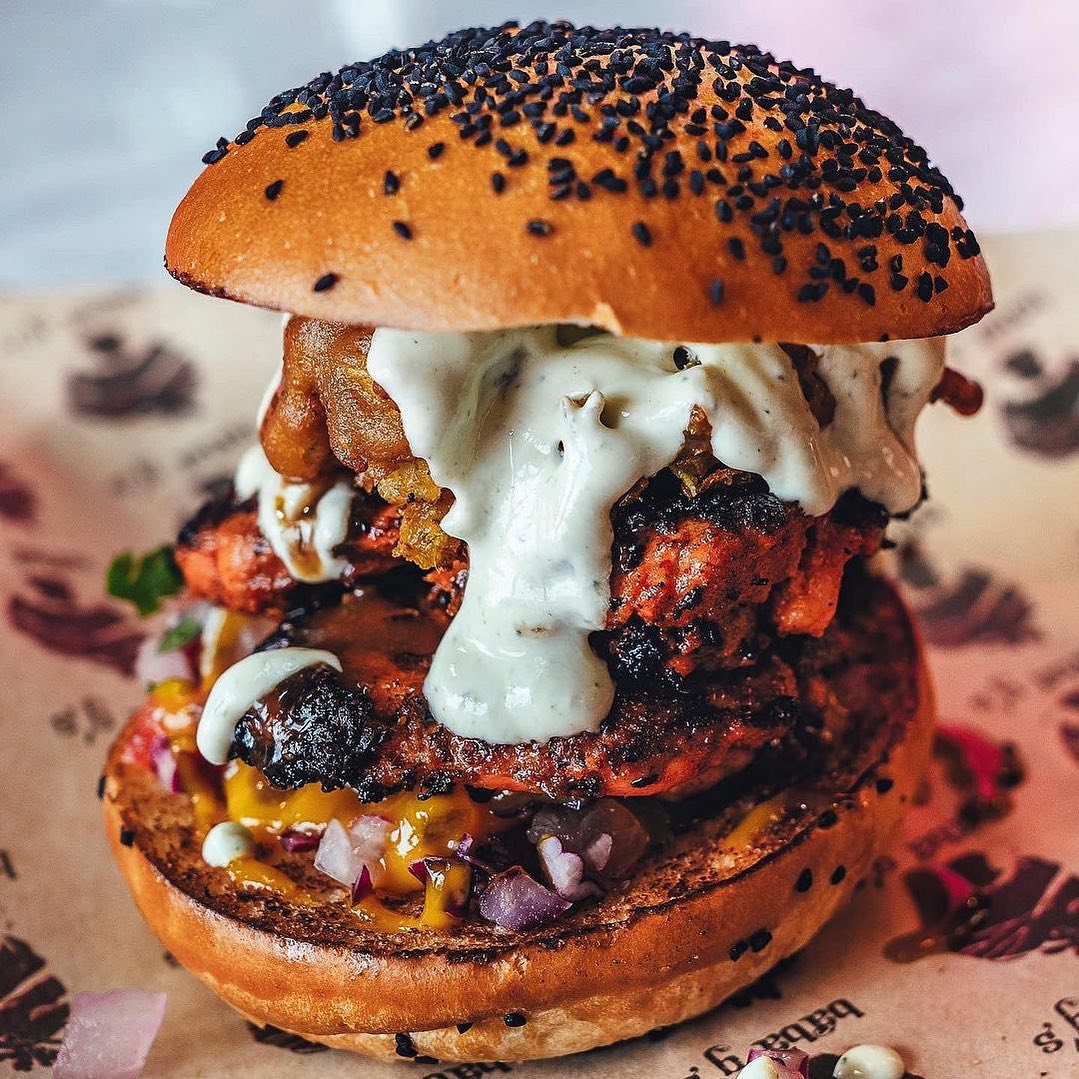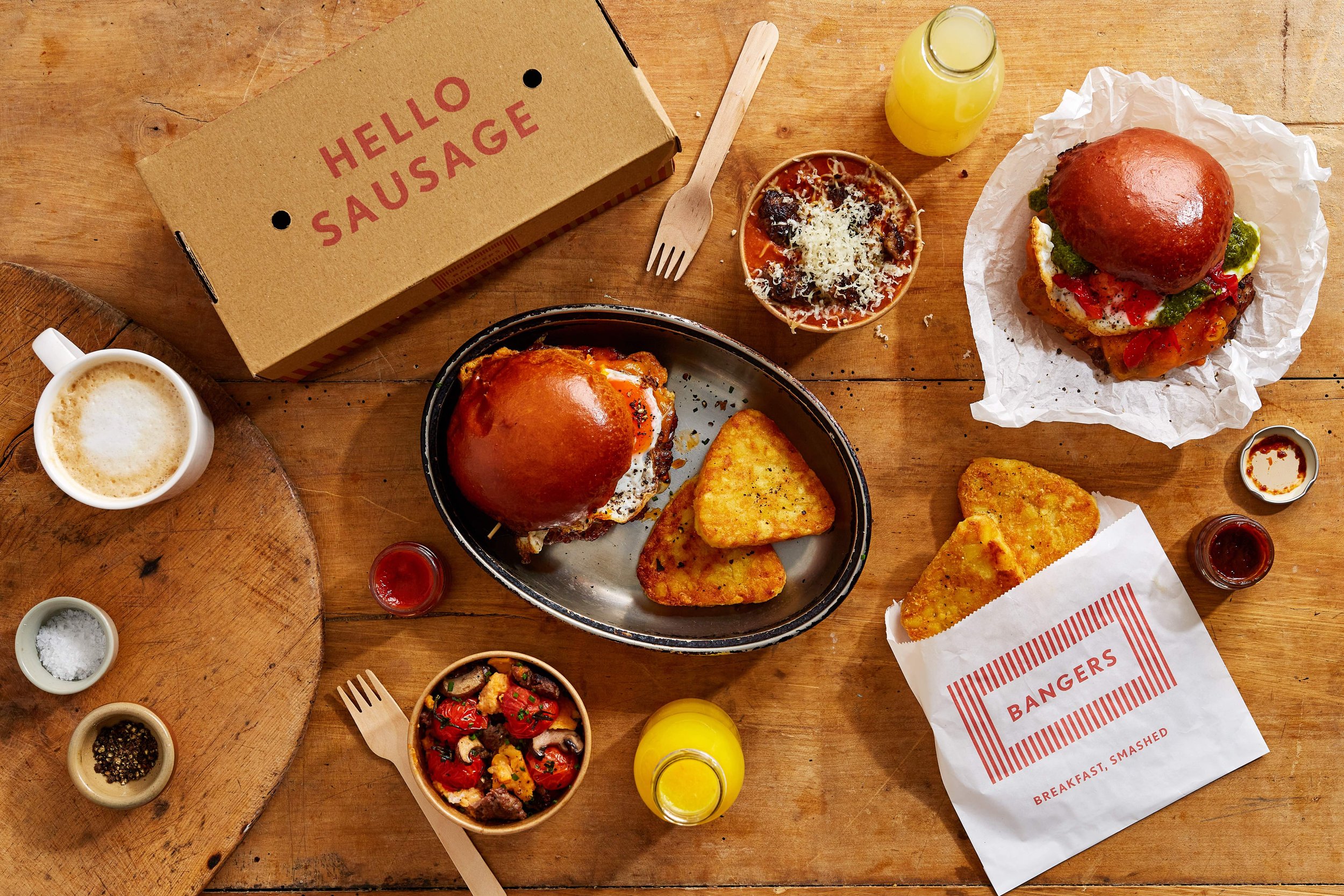“Chefs or Cooks?” asks Clare Finney to each of her thirty-one interviewees, to herself, and to her readers. Published in August 2021, The Female Chef was conceived and written over much of the Covid-19 pandemic. Acutely aware of the demands and pressure that successive lockdowns were placing on the restaurant industry, Finney knew that if she were to request time and energy from these chefs, she needed the project to be more than just another of the many “women-in-food” listicles populating the web.
Instead, Finney opts for something more interesting. Remembering Waitrose’s 2010 unveiling of their Food Brand Ambassadors, Delia Smith and Heston Blumenthal, Finney unpacks how the advertising campaign was worded and shot.
Blumenthal, posing seriously in professional chef’s whites, is described in the press release as “Britain’s top chef” and stands directly in front of Delia Smith. Meanwhile, the latter is seen wearing a smile and a pretty white shirt clearly not intended for kitchen work, and is described as “Britain’s best-loved cook”.
Finney questions the campaign’s choice of words, examines the use of gendered language in the kitchen and the ways in which terms like “chef” and “cook” propagate sexist attitudes in the restaurant industry.
Throughout the book, interviewees each share their views of the labels, how they identify themselves and which word they believe best encapsulates their work. That’s not to say the issue is black and white; many of the women showcased in The Female Chef will even change their minds as to which term they prefer over the course of the interview.

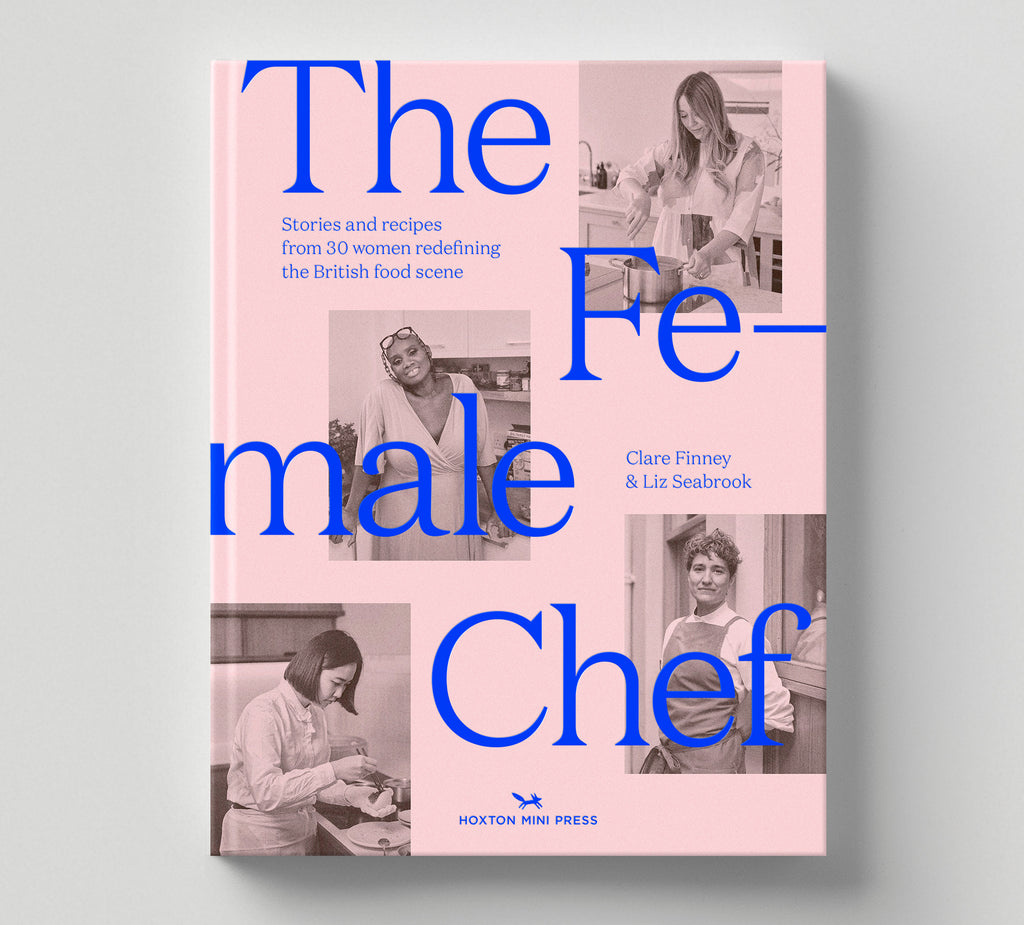
Taking us through their individual stories – how they got into cooking professionally, or why they make the food they do – Finney has orchestrated a beautiful snapshot of the contemporary trailblazers of the British food scene: a host of visionary, passionate chefs/ cooks who also happen to be women. Particularly interesting is Liz Seabrook’s photography for The Female Chef, showing these women at work in both their professional and home kitchens in a manner that intelligently blurs the perceived dichotomy between chef and cook.
As Margot Henderson of Rochelle Canteen puts it: “Anyone who goes to work every day and has to cook the same thing over and over again is a chef.” Whether one identifies more with “chef” or “cook” is a personal matter, but Henderson’s opinion that a “chef” is simply someone who cooks professionally is as straightforward a definition as we could hope for.
Hawkker has collated a few of The Female Chef’s highlights to give you a taste of this great book, and spotlight some of the phenomenal talent redefining the British food scene.
Anna Jones
Anna Jones is, as Finney puts it, a true modern chef. Her approach to cooking, emphasised in her most recent cookbook One Pot, Pan, Planet, favours a minimalist approach to the kitchen: from how much time is required to prepare the food, to how many pots are used and the amount of washing up that’s generated, Jones prioritises simplicity.
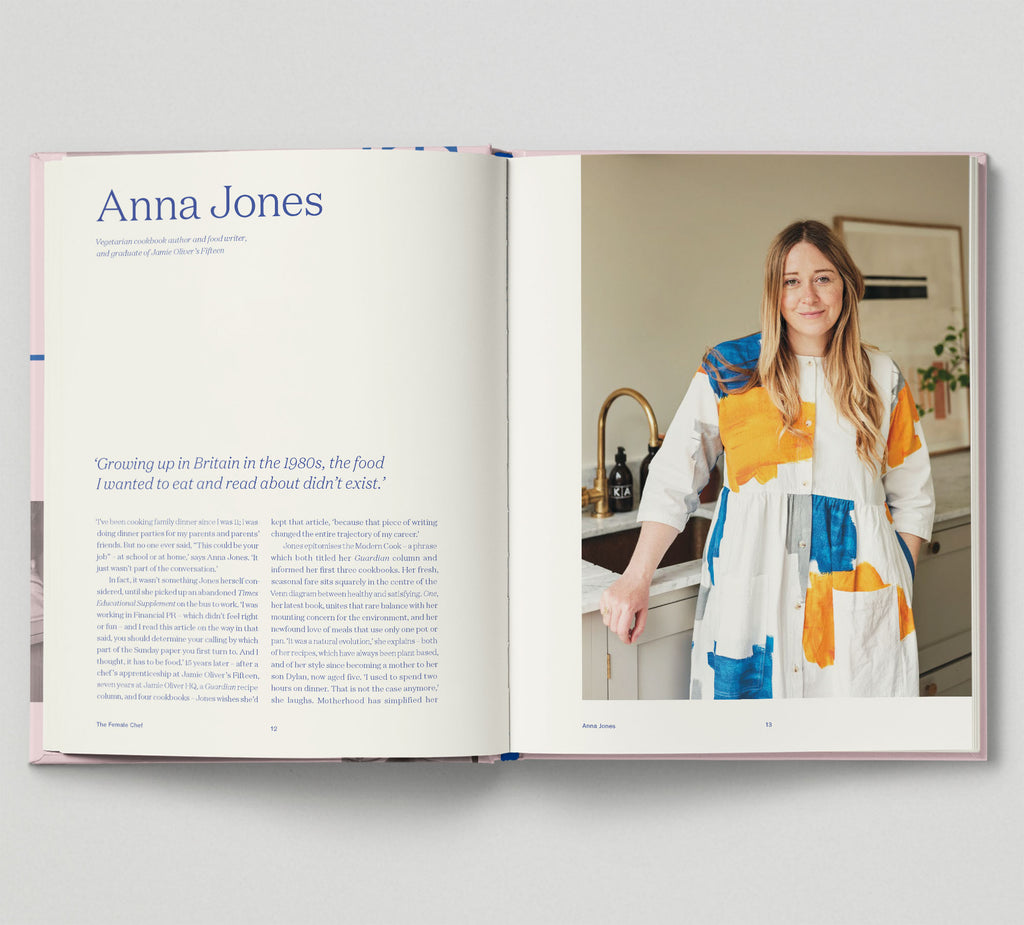
Championing nutritious, delicious vegetarian cooking, this generation is lucky to have cooks like Anna Jones. Growing up in ’80s Britain, Jones recalls that this type of healthy, accessible cooking was simply not a part of the conversation around cooking in British homes, so set out to change the culture herself.
Erchan Chang
In her profile, Erchan Chang immediately shakes off the labels of chef or cook, and instead describes herself first and foremost as an artist. Co-founder of BAO, the mini and ever-growing hub of Taiwanese food in London, Chang approaches each facet of the business with the same vision: a student of Art and Design, she centres BAO’s brand around one of her artistic projects, the “lonely man”.
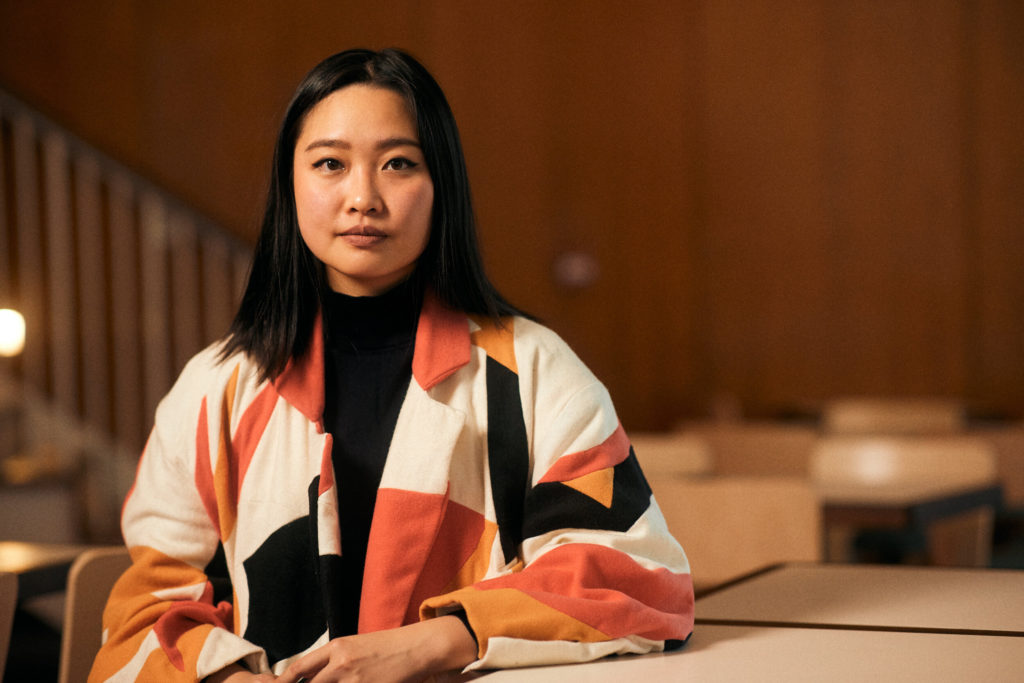
“In BAO restaurants, we always draw back to that central image: a place you can come on your own in the middle of a busy, cosmopolitan world to enjoy a warm bao and a quiet moment”. Chang’s Taiwanese and British palates combine to create innovative yet familiar recipes; for instance, a fish-based bao that tastes like the best chippy you’ve ever had. Such ideas are what identify Chang as one of the most exciting people working today.
Pamela Yung
Pamela Yung is the head chef at Flor, one of the best London restaurants when it comes to food sourcing, recipe development and work culture. “[Food] is more important than anything else we talk about”, Yung points out. Flor and Yung work hard to communicate the importance of a mindful approach to what we eat and how we source food; Yung emphasises the scope of food’s impact on our societies by highlighting the direct line from a food market to the ongoing pandemic.
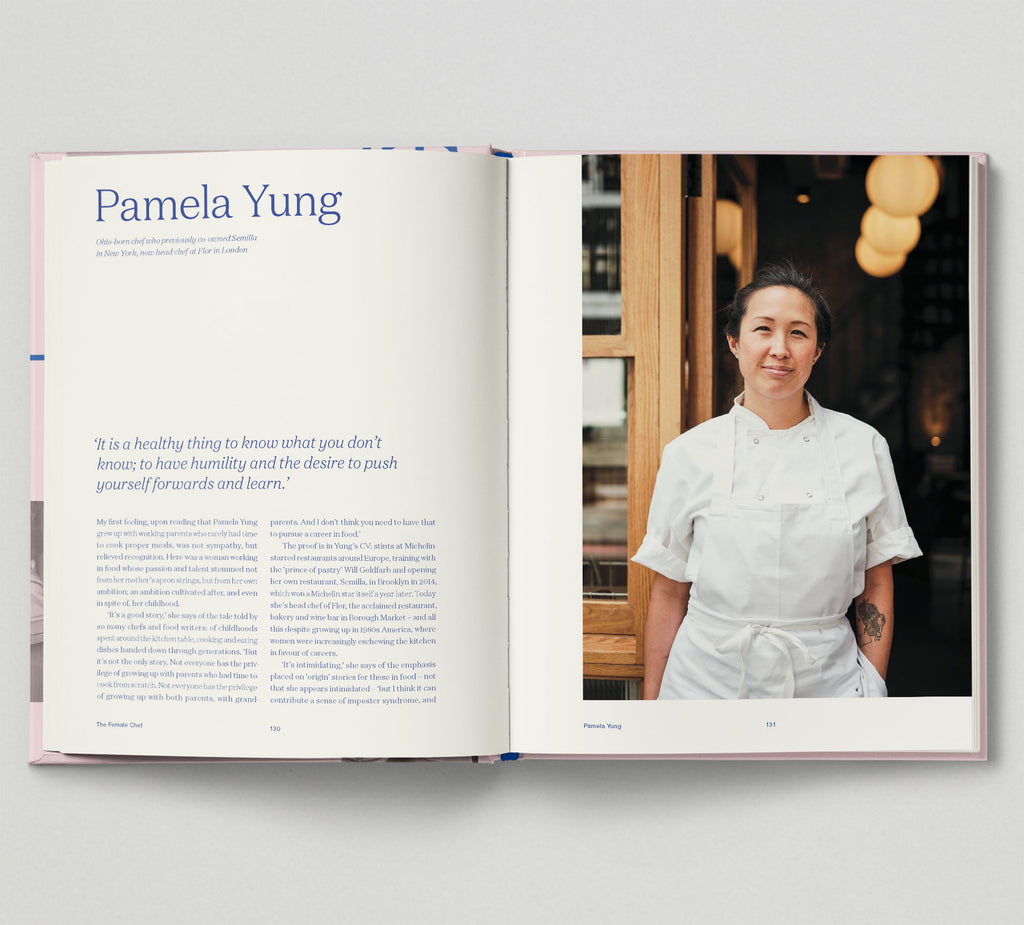
Discovering and learning the art of cooking by herself, without the “privilege of growing up with parents who had time to cook from scratch”, Yung’s work is a glowing testament to her deep interest in, care for, and understanding of our relationship to food.
Zoe Adjonyoh
“Zoe’s Ghana Kitchen” has been making waves in the British food scene. With a supper club, pop-up, catering business and a cookbook to her name, Zoe Adjonyoh has contributed to our collective interest and appreciation of West African food in the UK.
In her profile, Adjonyoh explains why she wanted her cookbook to have a particularly inspiring, colourful photography and design: “I wanted to offer an alternative narrative to what I was bombarded by growing up: of Africa as a place of famine and poverty”.
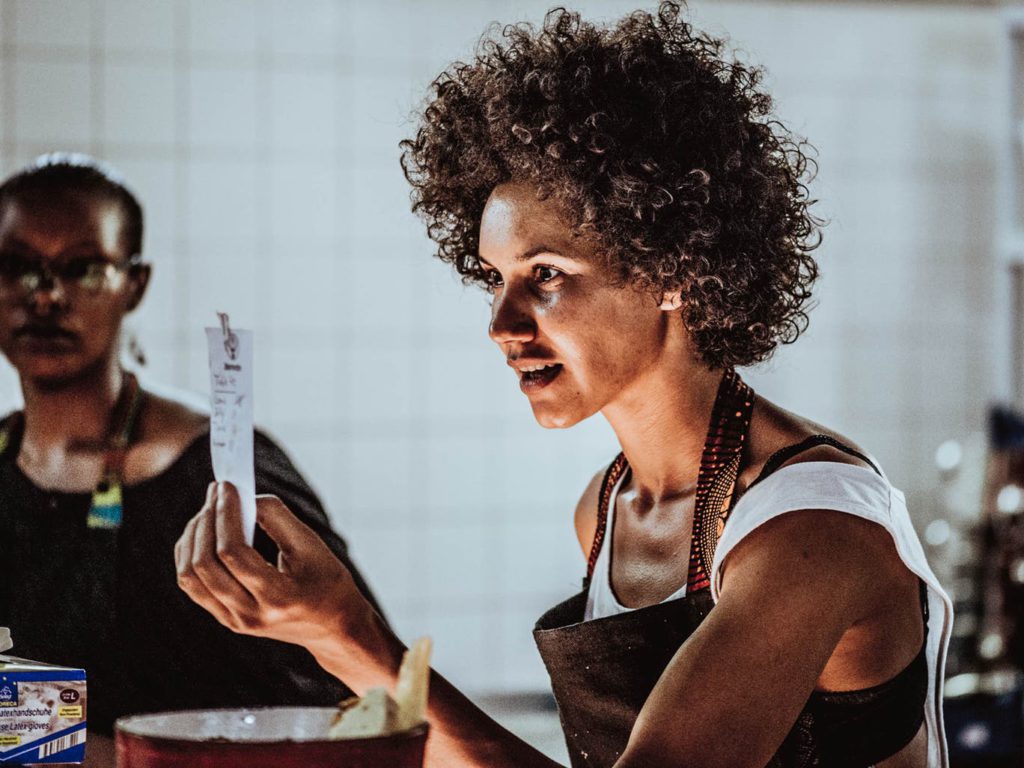
Fascinated by the food she’d see her dad cook growing up, Adjonyoh later found inspiration through the women in her life, and brings the nurturing experiences gathered from shared meals into her work today. By bringing the many nuances of Ghanaian food to her own culinary creations in Britain, Adjonyoh strives to decolonise people’s perceptions of Africa, one meal at a time.
Ravneet Gill
If you work in hospitality, you’ve probably heard of Countertalk. Pastry chef Ravneet Gill is the founder of this platform, a brand dedicated to fostering greater transparency in the hospitality industry, better accessibility and a kinder culture. “I wanted to make the world of hospitality more accessible for everybody, including those who aren’t well connected, who aren’t male, or middle class,” she explains.
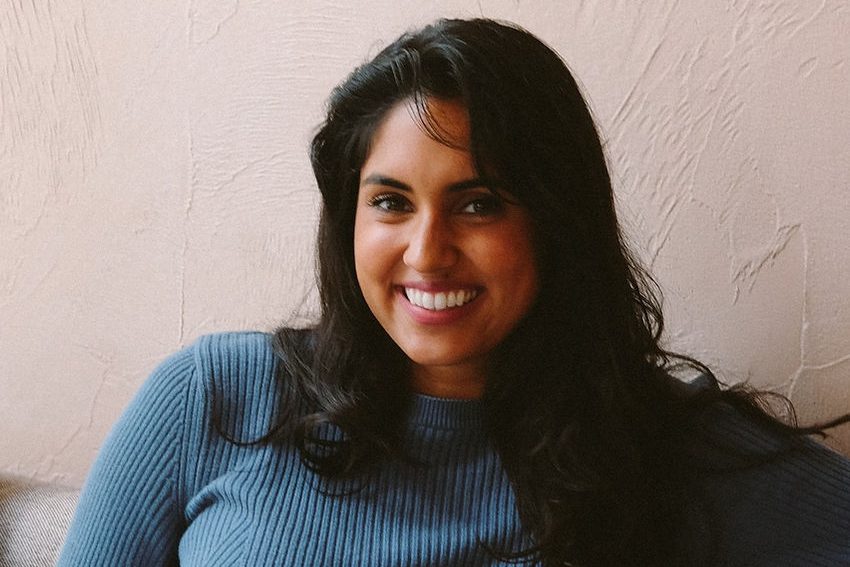
Having worked at some of the most highly respected food venues in London such as Black Axe Mangal or St John’s, Gill admits that it was thanks to good luck and hard work that she ended up at these places. “I just applied to jobs I saw on Gumtree […] This is a difficult world to know and penetrate if you didn’t grow up eating fancy cheese”.
Today, having perfected the art of pastry-making with unforgettable chocolate cakes, key lime pies, and malted walnut and chocolate chip breakfast loaves, Gill has established herself as one of the very best in her field.
The Female Chef does a brilliant job of showcasing some of the most talented working chefs in Britain today. As far as snapshots of the food world go, this is a truly inspiring and reassuring one – even if there is still a long way to go in terms of diversity in the kitchen.
But as Clare Finney writes, the future of British cuisine is in very good hands.
